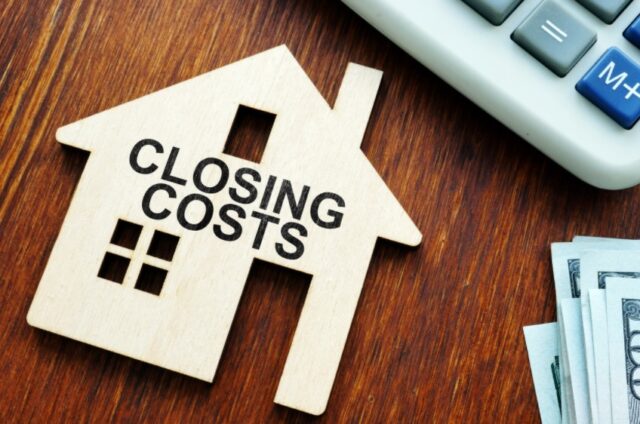The day has finally come when you’re ready to buy a house. Maybe you’re moving out of your parent’s home or are done with apartment life.
Whatever the case, buying a house is a huge stepping stone toward investing in your future and gaining more independence. But as you’ve probably guessed, it’s not as simple as going online and searching the latest listings on Zillow for the perfect home.
There’s a lot more to it that requires a bit of knowledge and research before you take any significant financial steps. Here’s what you need to know about buying a house for the first time in the state of New York.
Work with a Professional Real Estate Firm

In the current competitive market, there’s no way around trying to buy a house without a professional agent or broker to guide you. This is especially the case if you’re buying for the first time.
When you look for the appropriate firm, you don’t want to go for the first one you find on Google. You’ll have to do a bit of research and ask questions. Request that potential firms provide their credentials.
Agents are legally required to complete a 75-hour real estate salesperson course in New York, pass the state exam, and apply for a license while working under an official broker.
Make sure to inquire about recent closings and what their commission rates are. If you’re interested in learning more, click here for more details about how to start an online real estate salesperson course in the state of New York.
Go Over Your Finances
Committing yourself to a loan is a substantial long-term financial investment. Knowing what to expect from your mortgage payments, especially in New York, is critical when you develop a budget.
You have to know what you can realistically afford in terms of monthly payments alongside your other financial responsibilities. Lenders will typically look at such details as your credit score, debt-to-income ratio, employment status and history, and other financial information.
If your credit score isn’t that great, you may want to focus on raising it before you go out to apply for any loans. There will be other financial obligations to weigh, such as furnishings, renovations, and repairs, but first you must be prepared to save enough money before you buy, so you may shoulder these expenses on your own.
Know What You Wish to Pay

Before you head in for a loan application, you ought to have an idea how much you’re willing to pay. According to a recent report, the average price of a home in New York is currently around $370,000.
However, the closer you get to the city, the more you can expect to pay. At the low end, the median cost of a home in New York City is around $850,000.
Learn About the Various Types of Loans
Mortgages come in a wide range of choices, depending on specific elements of your personal and professional life. It’s useful to research the different types of loans that are available to you before you apply.
For instance, VA loans for veterans feature 0% for a down payment and low interest rates. Conventional 30-year loans will require a minimum of 20% down and interest rates vary, depending on your financial situation as well as the current market.
Other common types of mortgages include:
- Jumbo loans
- Adjustable-rate loans
- USDA mortgage
- FHA mortgage
Get Pre-Approved

Once your finances are under control and you know what you’re able to pay, you’re ready to seek pre-approval for a loan.
Showing up at an open house for your dream home and intending to make an offer will require some financial backing. Otherwise, the seller and agent won’t take your offer seriously.
Try to talk to several lenders before selecting the one you’ll go with; it’s wise to do this all in one day. Having multiple lenders run your credit will not have as great of an impact on your score if they happen within the same day. It’ll be recorded as having been run just once.
Pre-approval for a loan sets the highest amount you’ll be allowed to take out. We do not recommend you utilize the full amount if you can help it, though. For example, if a house you want to buy is $400,000 but you’re approved for $500,000, it’s better to stay on the low end. You’ll pay less interest in the long run.
Know Which Insurance Coverage You’ll Need
Every homeowner needs to be aware of the major types of insurance they’ll need for the property. Many lenders require certain types of insurance before they’ll accept your loan application. The main ones include:
- Homeowners insurance
- Private mortgage insurance
- Title insurance (Click here to learn more.)
- Flood insurance
- Legal insurance
These insurance policies are designed to protect the property and your assets in case of an unforeseen circumstance such as fire, robbery, or other damage.
Don’t Forget About Closing Costs

By now, it should be evident there are more expenses involved in buying a house than you may have anticipated. One you mustn’t overlook is the final closing costs.
These are expenses that have to be covered before you’re allowed to take ownership of the house. Fees such as appraisals, escrow, and pest inspection are all part of closing. According to Rocket Mortgage, you can expect to pay anywhere from 2% to 5% of your total loan during closing.
Thankfully, if you’re a first-time home buyer in New York, you might be eligible for grants or loans from the government that could assist with your closing costs and cover a few of these areas.
Stick To Your Budget
It’s all too easy to discover a home you fall in love with and feel willing to fudge your budget a little to get it. A little can go a long way, though: Be strict with yourself and stick to your budget.
Buying a house is frequently driven by our emotional state. If you push the limits, you may be shocked to learn that you won’t get approved for the loan your dream house requires.
Remember, you will face several financial obligations after the house is purchased for which you’ll be expected to be responsible. Every few thousand dollars you go above your original budget will take money away from other monthly expenses, maintenance, and repairs.







